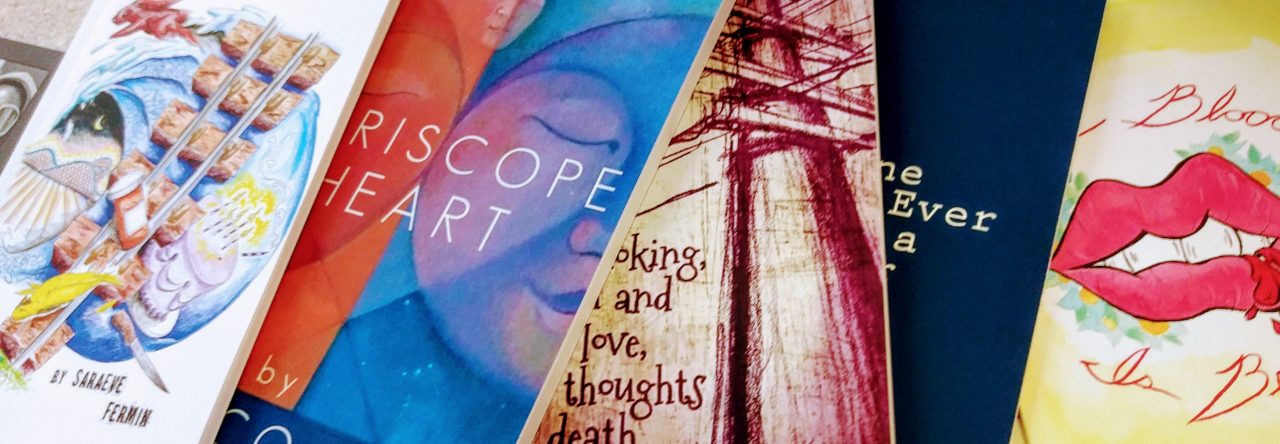Scent of a honey made of many flowers
— for Soledad Ramírez Marrón
What a romantic Grandpa was
when he first courted Grandma
against her father’s will—
his drinking buddy—
and bought her a cow
to go with the house he built her
out of mud and sticks and promises
of a better one once they had
enough money to leave behind
his farmlands, ex-wife and unwanted son.
Grandma got so good at cooking
carne con chile verde
because she made it every day,
and she went through the trouble so often
because Grandpa was pickier than an unbroken horse
trying to buck a rider off its back.
It was all he ever wanted to eat,
and hated eating other foods
as much as he despised
the way other people ate—
the lip-smacking, slurping, moan-breathing,
the sheer enjoyment of eating was the worst—
so, if you were going to eat with him,
you’d better eat right.
Of course, he’d never tell you what was right,
not even Grandma knew,
only what was wrong:
“Just don’t do anything to make him mad,”
she’d whisper as he’d place
a spoonful of her liquid fire in his mouth,
the metal edges never once clinking with his teeth.
“The secret to a good salsa,”
Grandma mused as she carefully
unfolded the crinkling paper from the garlic cloves
as if each were a note written only to her,
“is very similar to that of a good marriage:”
the things that can withstand
some degree of burning
should be roasted golden
until what remains
tickles the nose,
waters the corners of your mouth,
warms the throat
and reaches the heart;
if the smell is suffocating,
run away, it’s all ruined,
and you have no one to blame but yourself.
Grandma would lay the tomatillos to rest
next to their green cousins, the poblanos,
on a warm cast iron bed—
that wasn’t really a skillet,
but a top burner cover plate
from an antique wood stove
she fell in love with at a second-hand shop.
She cooked everything on that old thing,
every tortilla bore a raw spot
left untouched by the indentation
originally used to pry the plate off the heat:
it was rusty, no matter how many oil baths she gave it;
it was reliable;
and it was the way Grandpa saw her,
something to come home to that he could depend on.
Once the onion and garlic began to wiggle awake,
yawning, their waxy pearls hissing off the heat,
Grandma would season them with a salt
from a jute pouch where she hid her tears,
encrusted deep in her fingernails—
scratched off as she exited her mother’s womb—
and a cube of chicken bouillon;
she’d smile and shush anyone
who saw her dropping it into the blender.
She never once burned
Grandpa’s chile verde
because, in her mind, it was the reason
why he kept coming home to her,
because no one could burn up his mouth
and make his forehead and forearms swelter—
watering his honeycomb wrinkled, yet fierce, bewitching hazel eyes—
the way her picante fried with pork meat could.
Of the many times he left her,
to work and live and be happy abroad,
she stayed;
even as his way of laughing changed,
she stayed;
even when the townspeople told her
that they saw him again with another’s wife,
she stayed;
even when her daughters—
old enough to notice—
called her a cheap, little woman,
she stayed;
even when he knew that she knew
and would no longer hide around,
she stayed.
Nothing made her cry,
not even as she chopped a lot of onion—
oozing their white, milky blood—
for her delicious chilaquiles.
Even though she was burned
and could’ve left, letting the peppers burn until
their flames consumed the home
Grandpa built around her, not for her,
she stayed and kept it all
because the burnt parts
were what held the flavor;
the charred bits were what made
the salsa’s flavor spicier
and not even the man
for whom she made the chile for every day
and birthed 11 children for—
the one she once loved
as much as he once told her that he loved her—
could take away who she knew she was:
she simply refused to live her life any other way.
Jose Oseguera is an LA-based writer of poetry, short fiction and literary nonfiction. Having grown up in a primarily immigrant, urban environment, Jose has always been interested in the people and places around him, and the stories that each of these has to share. His writing has been featured in The Esthetic Apostle, McNeese Review, and The Main Street Rag. His work has also been nominated for the “Best of the Net” award (2018 and 2019) and the “Pushcart Prize.” He is the author of the forthcoming poetry collection “The Milk of Your Blood.”

“Like”, “Share”, and comment on this poem to nominate it for the Annual Swimming with Elephants Publications 2020 Anthology.
Click here check out Parade: Swimming with Elephants Publications Anthology 2018 available for only $10.95.

